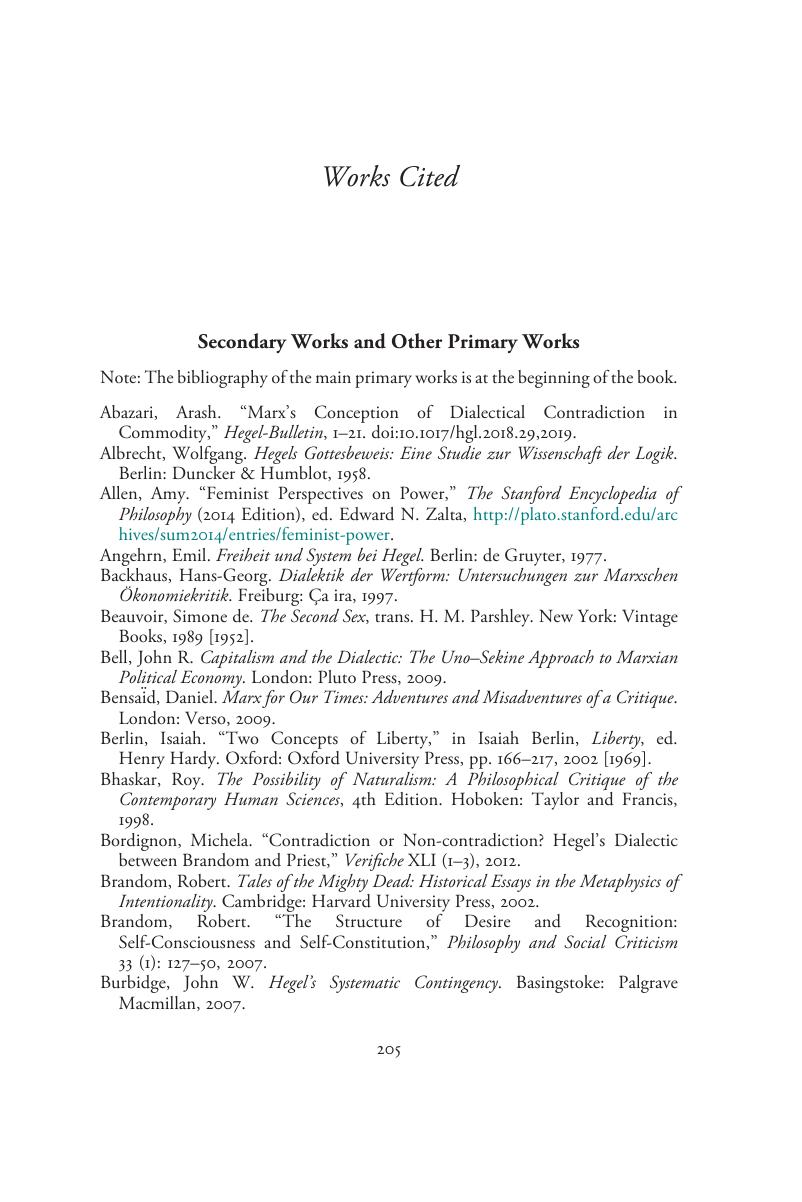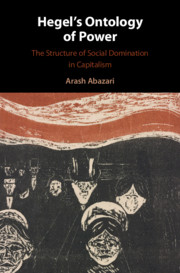Book contents
- Hegel’s Ontology of Power
- Hegel’s Ontology of Power
- Copyright page
- Epigraph
- Dedication
- Contents
- Acknowledgments
- Note on Abbreviations and Citations
- Introduction
- Chapter 1 Illusion or Semblance
- Chapter 2 Opposition
- Chapter 3 Totality
- Chapter 4 Capital as Totality
- Chapter 5 The Necessity of Totality
- Conclusion
- Works Cited
- Index
- References
Works Cited
Published online by Cambridge University Press: 10 July 2020
- Hegel’s Ontology of Power
- Hegel’s Ontology of Power
- Copyright page
- Epigraph
- Dedication
- Contents
- Acknowledgments
- Note on Abbreviations and Citations
- Introduction
- Chapter 1 Illusion or Semblance
- Chapter 2 Opposition
- Chapter 3 Totality
- Chapter 4 Capital as Totality
- Chapter 5 The Necessity of Totality
- Conclusion
- Works Cited
- Index
- References
Summary

- Type
- Chapter
- Information
- Hegel's Ontology of PowerThe Structure of Social Domination in Capitalism, pp. 205 - 212Publisher: Cambridge University PressPrint publication year: 2020
References
Works Cited
Note: The bibliography of the main primary works is at the beginning of the book.



